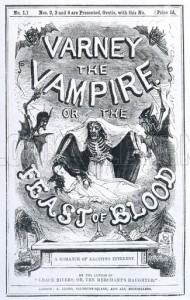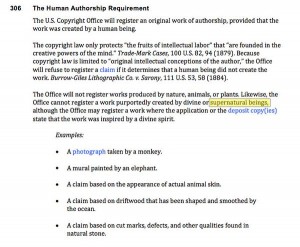 This was originally spotted by Orbit publicist Ellen Wright (original tweet here) and then picked up by tor.com. The US patent office has done some recent revision on who and who cannot apply for copyright. The revision was triggered by the controversy in 2011 over a monkey selfie.
This was originally spotted by Orbit publicist Ellen Wright (original tweet here) and then picked up by tor.com. The US patent office has done some recent revision on who and who cannot apply for copyright. The revision was triggered by the controversy in 2011 over a monkey selfie.
In 2011 David Slater was travelling on the Indonesian island of Sulawesi and a female Celebes macaque used his camera to take a ‘selfie’ (below). The photograph later appeared on Wikimedia commons, Slater asked for it to be removed, and Wikimedia commons disputed the request on the grounds that the photograph was not actually taken by David. The photograph is now firmly in the public domain thanks to the US copyright ruling, which actually gives the example of a photograph taken by a monkey as excluded from copyright.
The odd thing is that it also excludes copyright on objects made by supernatural entities including gods and ghosts. What does the US copyright office know that we do not?
Being bit more serious now, the ruling actually leaves a few things still rather murky. It does not clarify anything around copyright claims by artificial intelligences. It also leaves some zoo and elephant charities that make money by selling prints of paintings by elephants in a bind. They’ve just lost copyright to their product – one that requires a lot of time and effort on the part of human keepers to set up. It also begs the question what artwork produced by ‘nature’ is… if setting up a canvas for an elephant does not result in copyrightable art, then what about tying paintbrushes to a tree and letting the wind make patterns on canvas? Are Jackson Pollock’s dribble paintings now open to a technical attack on copyright? After all, nature working through gravity actually produced the work. Jackson Pollock merely set up the situation by holding paint cans and brushes some way above a canvas. The situation doesn’t seem very different to the situation with an elephant except that gravity is the causal ‘agent’ rather than the elephant.
One other point of interest is that the US Copyright office will only accept copyright applications from ‘humans’ but will not accept copyright applications from ‘animals’. Unless The US copyright office thinks humans are made of mineral or fungal matter, humans are animals. Not in a technical sense, in a real everyday language sense. This implies that the only copyright claim the US copyright office will accept are those from non-animal humans. As such a group does not exist, there is at least a technical (if almost certainly doomed to fail in the courts) argument that the copyright office has just voided all copyright.

Of course I say it is doomed to fail because legal logic is not scientific logic. It reminds me of a case back around 1900 when an importer of whale oil refused to pay a tax on fish products because whales were not fishes. This went to court and a jury of educated men and woman agreed that whales clearly were fish and therefore the importer needed to pay the tax. A parade of confused experts to the contrary did not disabuse the jurors of their own deeply held conviction that whales were fish.
Regardless, we definitely do know that ghosts and gods cannot claim copyright, so it might be best to get your best work done while still pre-deceased. You know, just in case.

